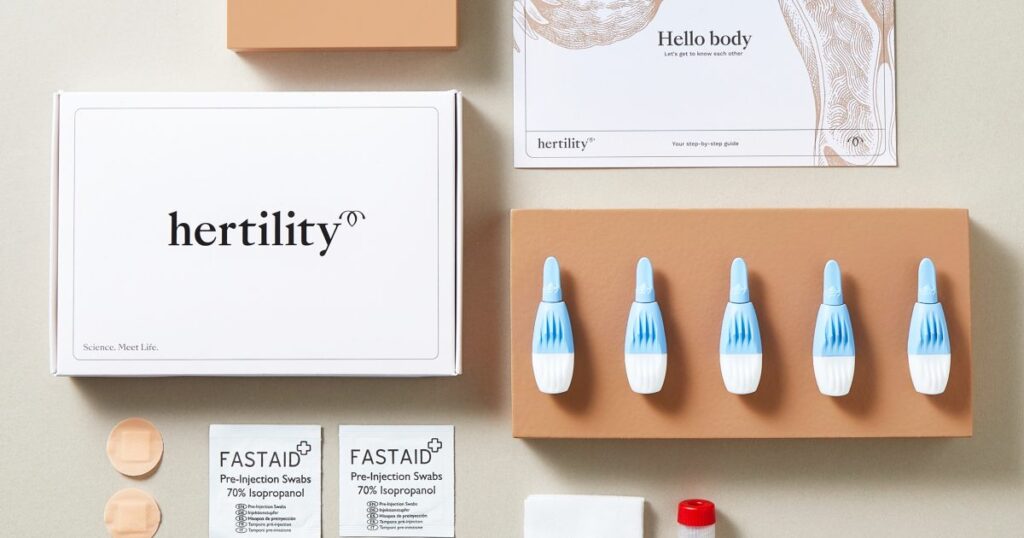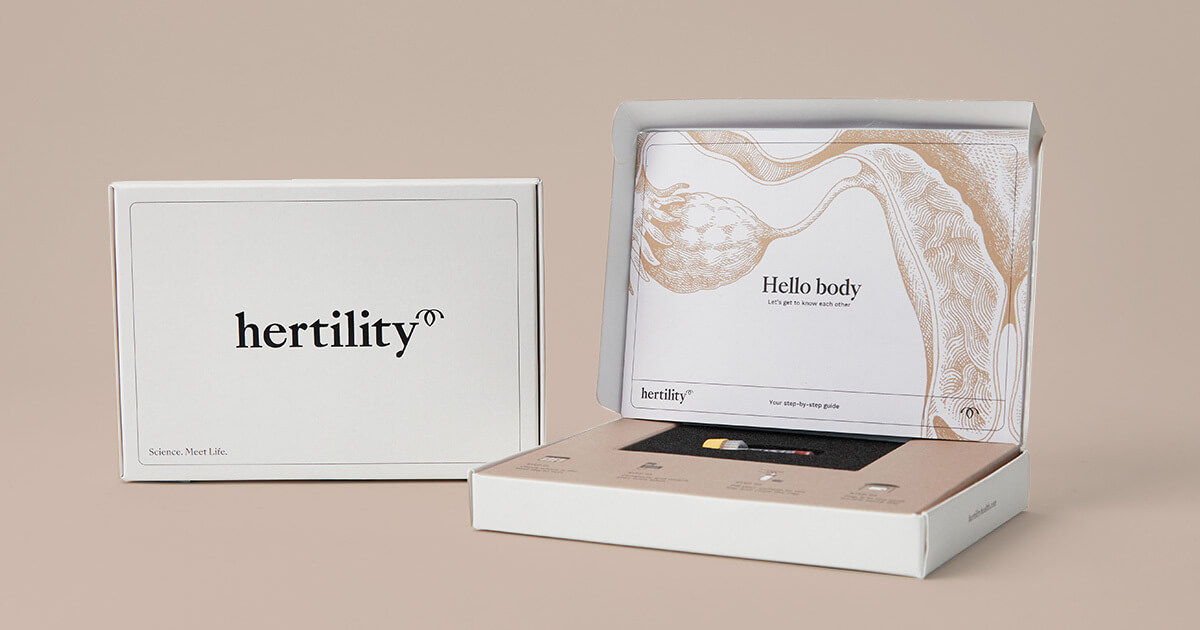Unlike what we are made to believe, getting pregnant is not always easy. In fact, 1 in 7 heterosexual couples in the UK face fertility issues. If you’re planning for a baby or have been trying to conceive for a while, you may be feeling a little overwhelmed looking for where to get fertility test.
If you are TTC as a couple, prioritising the health of both partners, understanding when and where to get fertility test, and getting appropriate testing is an important first step. Here is a step-by-step guide on how you can check in with your fertility.
1. Hormone tests
This is always a great place to start, no matter where you are on your pathway to parenthood. Your hormones regulate your menstrual cycle and fertility (along with many other body functions!), and so it is essential that they are all working in harmony. Any imbalance can throw this song off-key, which can affect your fertility!
By looking at your cycle characteristics and measuring the hormones that control your menstrual cycle, such as oestrogen, follicle-stimulating hormone (FSH) and luteinizing hormone (LH), our specialists can signpost if there might be a chance you are not ovulating regularly (remember that ovulation is necessary for pregnancy to happen!)
Anti-Müllerian hormone (AMH) is a hormone made by the sacs that house the immature eggs in your ovaries. AMH levels decrease as your egg count declines with age, meaning it can give an insight into your current ovarian reserve, i.e., how many eggs you have left.
Testing other hormones, such as thyroid-stimulating hormone (TSH), is useful to identify underlying health conditions such as thyroid disorders, which may cause issues with your menstrual cycle and pregnancy.
Prolactin is another important hormone; high stress levels can increase its levels, which can cause irregular menstrual cycles.
Testosterone is often tested in cases where someone is suspected of having polycystic ovary syndrome (PCOS). PCOS is a common condition that affects 1 in 10 people. It can affect your hormones, causing irregular ovulation, which can make trying to conceive more difficult.
Confused about what hormones you need to get tested for? You can get clarity on what’s going on inside your body with Hertility’s government-regulated and award-winning hormone and fertility tests. Complete our Online Health Assessment to create a bespoke at-home hormone test that tests up to 10 hormones.

Special Discount: Get a £10 discount with this code at checkout: ECO_10
2. Physical examinations
While hormones can give you an idea of what’s happening on the inside, there are also some physical assessments that might be carried out.
An essential part of fertility testing and treatment is taking images of the uterus, ovaries, cervix, vagina, and fallopian tubes. This can be done through a pelvic ultrasound; it may be an internal (transvaginal), external (transabdominal), or a combination of both.

It can also be used to count the number of follicles in your ovaries. This scan is called an Antral Follicle Count (AFC).
A special X-ray called hysterosalpingography (HSG) may also be done to check the fallopian tubes for any blockages. Blocked tubes can prevent the egg and sperm from meeting, meaning pregnancy will not occur.
With Hertility, you can solve the problem of ‘where to get physical fertility test’. You can choose from next-day appointments with expert sonographers at our partner clinics to give you complete clarity on your egg count, help investigate hormonal symptoms, and diagnose reproductive health conditions.
3. Infertility is not just a women’s issue.
1/3 of all infertility cases are due to male factors like poor sperm quality or sexual dysfunction.
If you are in a heterosexual relationship, apart from general physical examinations and blood tests to assess overall health, your partner might be asked to undergo a semen analysis to understand the health of their sperm as well.
The other 2/3 of fertility cases are caused by female factors, making the question of ‘when to seek help’ very important in your fertility journey.
4. Know when to seek help…
It’s never too early to get insights into your health and fertility, but if you are reading this and have already started your journey towards trying to conceive (TTC), then remember that it all comes down to your age and medical history.
It is recommended that if you are actively trying to conceive and are over 35, you try for no longer than six months before speaking with a fertility specialist. If you are under 35, you should wait no longer than a year.
If you also suffer from a health condition that impacts your reproductive health and chances of conception, such as PCOS, endometriosis, or thyroid issues, you are advised to look into female fertility tests after 6 months of actively trying to conceive.
5. Know where to seek help…
If you’re planning your path to parenthood, Hertility is here to solve your problem of where to get fertility test and guide you from the comfort of your couch.
Unfortunately, the NHS has countless barriers to entry and waitlists of over 630,000 women just to see a gynaecologist. Not only is the Hertility journey much faster than the long referral wait time with the NHS, but it is also significantly more affordable when compared to testing at a fertility clinic.
The Hertility Online Health Assessment will review your medical history and overall health to understand if there might be anything that could impact your ability to get pregnant or have a successful pregnancy, especially information about your:
- Menstrual cycle and any symptoms you might face;
- Personal history of health conditions such as diabetes, thyroid issues, past surgeries, etc.
- Diet and lifestyle
- Medication, including prescription, over-the-counter medications, supplements or contraception you might be on,
- Family history, which includes a history of any health conditions such as diabetes, thyroid issues,
- Past pregnancies or pregnancy-related complications
Your answers will be used to customise your Hertility Health journey, which includes a tailored at-home hormone test, personalised results reviewed by a private gynaecologist, nutrition and mental health support, access to highly-rated experts and fertility clinics, educational content, and a community of care to support you throughout your journey.
Hertility also offers packages that include your full blood panel, a pelvic ultrasound scan, a Fertility Advisor call, a referral to a fertility clinic, and a free doctor’s consultation (usually charged at £200), which will fast-track your journey to get support in your fertility journey at a fraction of the price of the clinic.
Still not sure about the process or what your next step should be? Speak to a fertility advisor. Our advisors are trained nurses and midwives who have years of experience working in fertility clinics. Your call will be in-depth and completely personalised, offering personal symptom management advice and expert guidance on navigating fertility services and treatment options.
Special Discount: Get a £10 discount with this code at checkout: ECO_10






0 Comments